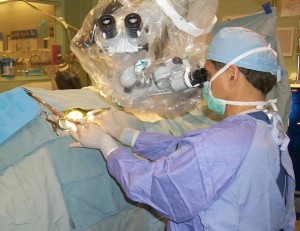Healthy Living and Dementia Prevention
 January 29, 2021 In a Series of Radio shows, Dr. Joseph Maroon’s colleague and physician assistant Jeff Bost PAC, presented information on Alzheimer’s disease and dementia related topics. In the first session entitled, Healthy Living and Dementia Prevention, Mr. Bost reviews the most common risk factors for maintaining brain health, what can be done to counter them and best ways to preserve brain function. The radio shows are sponsored by St Barnabas Health System (SBHS). Both Dr. Maroon and Mr. Bost are brain health advisors to SBHS.
January 29, 2021 In a Series of Radio shows, Dr. Joseph Maroon’s colleague and physician assistant Jeff Bost PAC, presented information on Alzheimer’s disease and dementia related topics. In the first session entitled, Healthy Living and Dementia Prevention, Mr. Bost reviews the most common risk factors for maintaining brain health, what can be done to counter them and best ways to preserve brain function. The radio shows are sponsored by St Barnabas Health System (SBHS). Both Dr. Maroon and Mr. Bost are brain health advisors to SBHS.
Session 1. Summary
Presenter -– Jeff Bost PAC
In the last 150 year the average life expectancy has almost doubled. If our early ancestors in the 1800’s had been told that in the future that people could live well into their 80s few would believe it. This is a staggering increase and has occurred in last four or five generations. Scientists are convinced we still haven’t reached the limit of the human lifespan. Although medical science has been able to provide advances in our physical health and overall longevity these benefits have done very little to preserve our brain health and continued optimal function for the duration of our lifespan.
The goal for most of us, however, is not to simply to live longer lives, but to continue to live healthier, more engaged, more vibrant lives. To do this we need to maintain our brain function. In fact, rather than fearing death, most people fear the possibility that they will develop dementia, Alzheimer’s, or another neurodegenerative disease. The fear of age related dementia, for many, is the inability to take care for one’s family, and that they might become a burden to their loved ones.
In this segment Mr. Bost will discuss the greatest risk factors for maintaining brain health, what can be done to counter them and preserve brain function. He will discuss the “right” choices you can make and the “wrong” choices for brain preservation.
Click PLAY below to Listen to Radio Interview Discussion for Session 1 (11/26/2020)

HIGHLIGHTS
Things that we CHOOSE to Do for our Heart and Body also Help our Brain
EXERCISE:
- Improves the health of the heart and blood vessels, which can reduce the risk of high blood pressure and heart disease
- Reduces the risk of some types of cancer (particularly breast and colon cancer), stroke and type 2 diabetes
- Improves physical fitness – maintaining strong muscles and flexible joints can help people maintain independence for longer
- Improves the ability to dress, clean, cook and perform other daily activities (as these may be performed more effectively if someone is fitter or more supple)
- Helps to keep bones strong and reducing the risk of osteoporosis (a disease that affects the bones, making them weak and more likely to break)
- Improves cognition – recent studies have shown that exercise may improve memory and slow down mental decline
- Improving sleep
- Increased opportunities for social interaction and reducing the feeling of isolation
- Reduces the risk of falls by improving strength and balance
- Improved confidence, self-esteem, mood and can even reverse depression
Reference: CAN DEMENTIA RISK BE REVERSED OR PREVENTED?
Key messages from Lancet Article1 on Dementia Prevention
- New evidence supports adding three modifiable risk factors—excessive alcohol consumption, head injury, and air pollution to prevent dementia—other important risk factors (less education, hypertension, hearing impairment, smoking, obesity, depression, physical inactivity, diabetes, and infrequent social contact).
- Modifying 12 risk factors might prevent or delay up to 40% of dementias.
- Be ambitious about prevention
- Prevention of dementia begins early and continues throughout life, so it is never too early or too late.
- High-risk groups need to increase social, cognitive, and physical activity; and vascular health.
Specific actions to reduce risk factors across the life course
- Aim to maintain systolic BP of 130 mm Hg or less in midlife from around age 40 years (antihypertensive treatment for hypertension is the only known effective preventive medication for dementia)
- Encourage use of hearing aids for hearing loss and reduce hearing loss by protection of ears from excessive noise exposure.
- Reduce exposure to air pollution and second-hand tobacco smoke.
- Prevent head injury.
- Limit alcohol use, as alcohol misuse and drinking increases the risk of dementia.
- Avoid smoking uptake and support smoking cessation to stop smoking, as this reduces the risk of dementia even in later life.
1Reference: Dementia prevention, intervention, and care: 2020 Lancet report
Disclaimer: Every effort has been made by the author(s) to provide accurate, up-to-date information. However, the medical knowledge base is dynamic and errors can occur. By using the information contained herein, the viewer willingly assumes all risks in connection with such use. Neither the author, Beaver Radio, nor St Barnabas Health System or its affiliates shall be held responsible for errors, omissions in information herein nor liable for any special, consequential, or exemplary damages resulting, in whole or in part, from any viewer(s)’ use of or reliance upon, this material.
CLINICAL DISCLAIMER:
Clinical information is provided for educational purposes and not as a medical or professional service. Person(s) who are not medical professionals should have clinical information reviewed and interpreted or applied only by the appropriate health professional(s). (Read More HERE)




 Dr. Maroon received an athletic scholarship to Indiana University in Bloomington, Indiana where as an undergraduate, he was named a Scholastic All-American in football. Dr. Maroon has successfully maintained his personal athletic interests through participation in 9 marathons and more than 72 Olympic-distance triathlon events. However, his greatest athletic accomplishment is his participation in 8 Ironman triathlons (Hawaii – 1993, 2003, 2008, 2010, 2013; Canada – 1995; New Zealand – 1997; Germany – 2000), where he usually finishes in the top 10 of his age group. Recently, in July 2012 and 2013, he finished second and third, respectively, in his age group in the Muncie, Indiana half Ironman triathlon. In October 2013 he completed his 5th World Championship Ironman in Kona, Hawaii.
Dr. Maroon received an athletic scholarship to Indiana University in Bloomington, Indiana where as an undergraduate, he was named a Scholastic All-American in football. Dr. Maroon has successfully maintained his personal athletic interests through participation in 9 marathons and more than 72 Olympic-distance triathlon events. However, his greatest athletic accomplishment is his participation in 8 Ironman triathlons (Hawaii – 1993, 2003, 2008, 2010, 2013; Canada – 1995; New Zealand – 1997; Germany – 2000), where he usually finishes in the top 10 of his age group. Recently, in July 2012 and 2013, he finished second and third, respectively, in his age group in the Muncie, Indiana half Ironman triathlon. In October 2013 he completed his 5th World Championship Ironman in Kona, Hawaii.